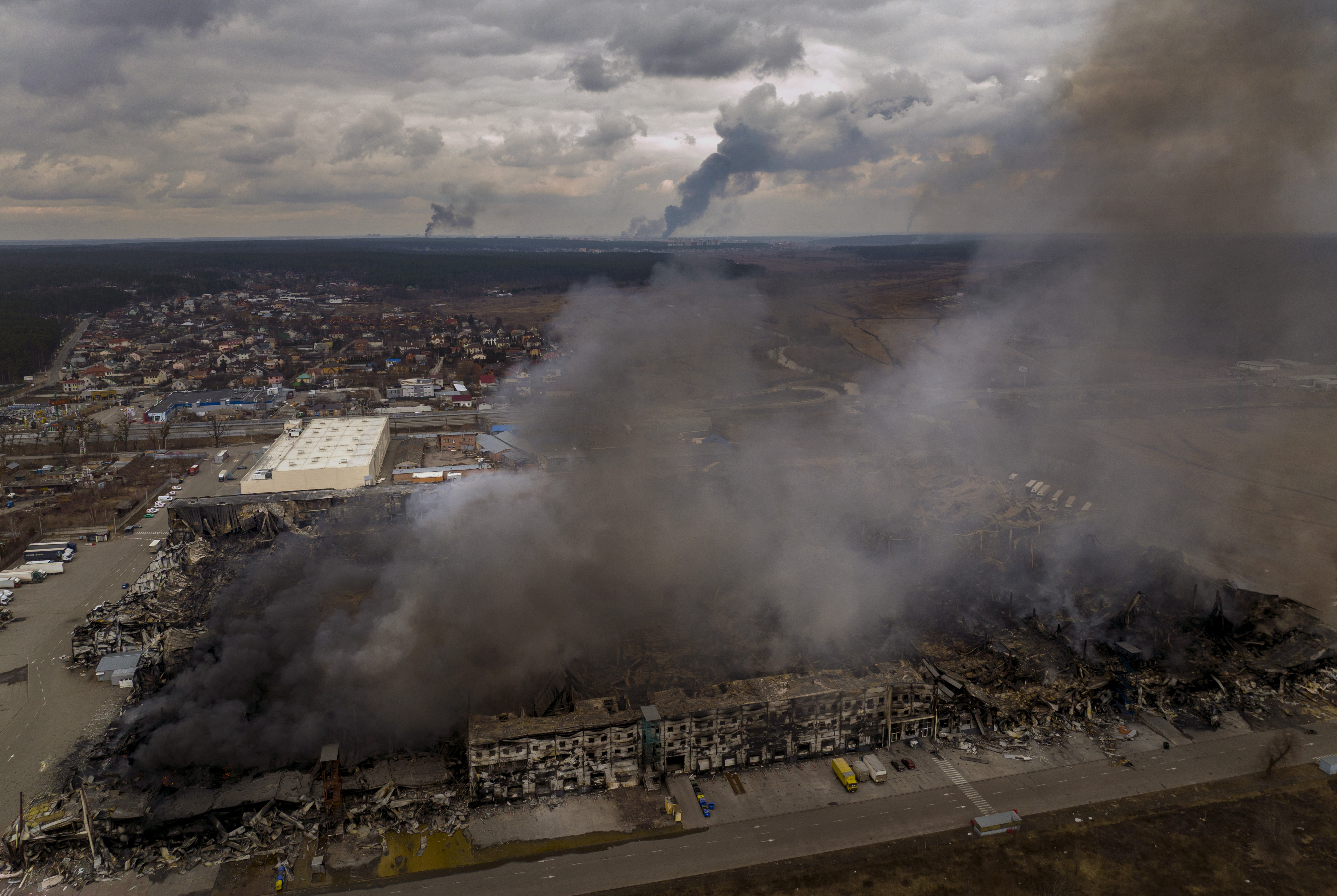Russian authorities on Sunday continued to block independent news outlets and to arrest protesters in an effort to tighten control over what information the domestic audience sees about the invasion of Ukraine.
Multiple independent online outlets were blocked on Sunday, on top of dozens of others that were blocked last week. Others decided to halt their operations in Russia because of new repressive laws or refused to cover the invasion at all because of the pressure. Hundreds of protesters have been detained across Russia.
The new additions to the list of blocked media included Mediazona, a news site that covers Russia's police and justice system and has been an indispensable source of information about political arrests and high-profile court cases; the website of Snob magazine; the Agentstvo investigative news outlet; the 7x7 site covering regional news; the Troitsky Variant popular science newspaper that has published an open letter decrying the invasion; and two regional news sites that also spoke out against the attack.
U.S.-funded broadcaster Radio Free Europe/Radio Liberty announced Sunday it was suspending its operation in Russia after it said the country intensified pressure on its journalists and tax authorities initiated bankruptcy proceedings against it.
Get top local stories in Southern California delivered to you every morning. >Sign up for NBC LA's News Headlines newsletter.
“(Russian communications and media agency) Roskomnadzor demanded we delete our entire website. Yes, we received this demand from the agency — to block ourselves. Because we incorrectly cover Russia's attack on Ukraine and call the war a war,” Mediazona said in a statement.
“We were prepared for this. In recent days, military censorship has been effectively introduced in Russia, and there are almost no independent media left in the country. We understand all our risks, but we continue to work — this is our duty to our readers and to ourselves,” the outlet said and listed several ways Russian readers can get around the block.
RFE/RL, which has been physically present in Russia since 1991, was planning to continue reporting on Russia and its war in Ukraine from abroad.
More Russia-Ukraine War
“We will continue to expand our reporting for Russian audiences and will use every platform possible to reach them at a time when they need our journalism more than ever,” chief executive Jamie Fly said.
Russian President Vladimir Putin on Friday signed into law a bill that criminalizes the intentional spreading of what Moscow deems to be “fake” reports. Those convicted of the offense would face up to 15 years in prison.
Russian authorities have repeatedly and falsely decried reports of Russian military setbacks or civilian deaths in Ukraine as “fake” news, as well as reports calling the offensive a war or an invasion. State media outlets and government officials refer to Russia’s invasion of Ukraine as a “special military operation” and insist the Russian forces only target military facilities.
Despite the efforts to tightly control the narrative, Russians all across the country have spoken out against the war. Tens of thousands have signed open letters and online petitions demanding to stop it, and street protests in dozens of Russian cities have been happening almost daily since the attack began on Feb. 24 — always followed by mass detentions.
On Sunday, protests spanned from Siberia to St. Petersburg, with dozens of Russians taking to the streets in different cities. According to OVD-Info, a rights group that tracks political arrests, more than 4,600 people were detained in 65 Russian cities on Sunday, part of over 13,000 people detained since Feb. 24.
This is a live update. Click here for complete coverage of the crisis in Ukraine.



